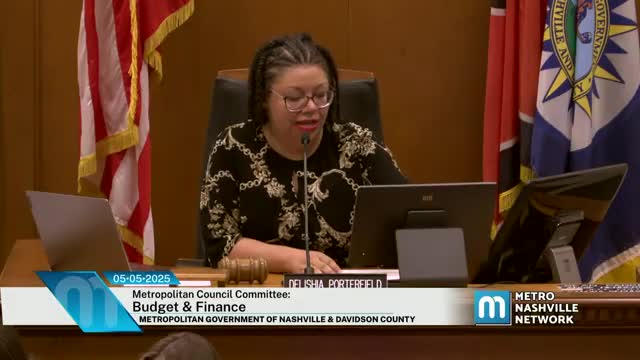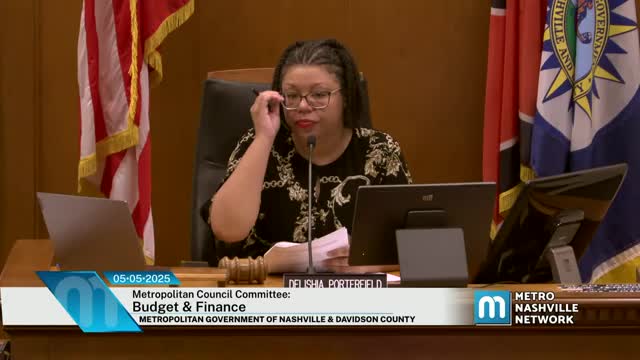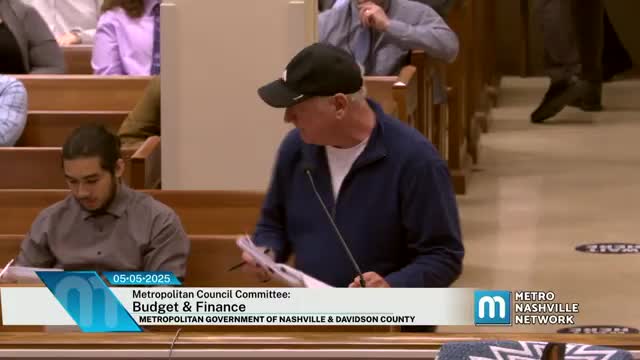Article not found
This article is no longer available. But don't worry—we've gathered other articles that discuss the same topic.

Public commenter urges deferral of BL2025-811, questions Homeless Planning Council classification and Metro Legal role

Council approves surveillance-technology agreements for NDOT, Waste and Water departments after privacy briefing

